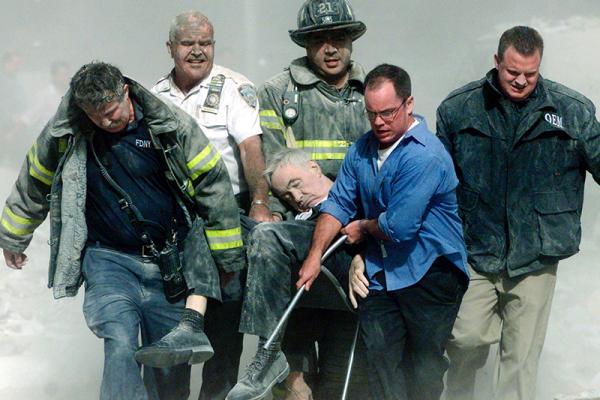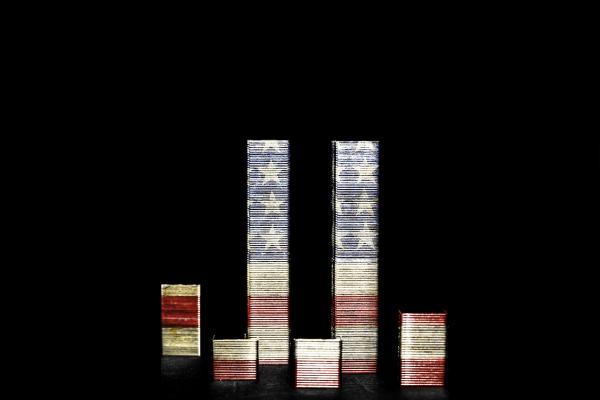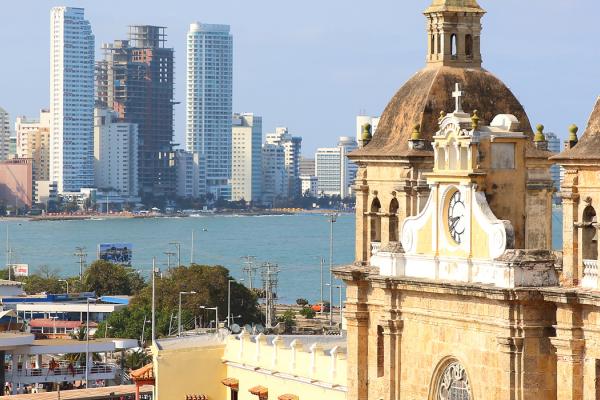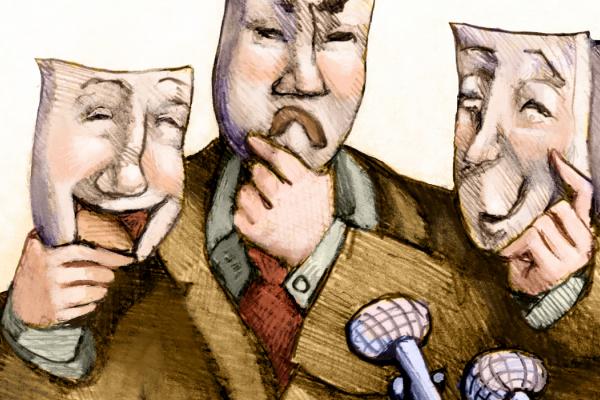Amos saw that economic exploitation takes many forms. Sometimes it might even appear as a shiny new app. For Amos, “socioeconomic reorganization without compassion is not acceptable.” Nearly 3,000 years later in today’s gig economy, the same must be true for us.
A generation ago, a curator at the Israel Museum in Jerusalem noticed a man saying Kaddish, the prayer of mourning, in front of a seder plate.
When she learned the plate belonged to the man’s sister, who was murdered in the Holocaust, the curator gave him a life membership to the museum because the ritual object, which had been a wedding gift, was the closest the mourner could get to his sister’s remains.
That man, Herbert Kahn, was the father of Tobi Kahn, one of the 13 artists whose work will be on display at the National Sept. 11 Memorial Museum for the next 16 months in an exhibit called “Rendering the Unthinkable: Artists Respond to 9/11.”
In August 2016, as the 15th anniversary of the 9/11 attacks loomed, religious leaders tuned into a webinar to prepare themselves for a possible future disaster.
“Who was the first official casualty of 9/11?” asked Monsignor Stephen Rossetti, a Catholic priest and psychologist who led the webinar on “Shepherding in Tragic Times.”
“Father Mychal Judge,” he said, answering his own question, and referring to the priest who was fatally injured while ministering amid the chaos of the North Tower lobby.
Of course, those places were disappearing even when I lived there — that’s part of the charm of New York City, things come and go. In the city that’s very name has been changed to stay current, old things are constantly made new.
But it never became less jarring to note the Twin Towers’ absence on the horizon.
An effort by the Standing Rock Sioux Tribe to stop the construction of a four-state Dakota Access oil pipeline was denied by a federal judge on Sept. 9, according to the Chicago Tribune.
Shortly following the court decision, the U.S. Department of Justice, the U.S. Army, and the U.S. Department of the Interior issued a joint statement ordering suspension of the construction of the pipeline.
While the other Jesuits ministered to slaves and freedmen, Peter couldn’t take his mind off of the port and the bodies, both living and dead, that he had seen. He was given leave to focus his life’s work on welcoming these ships, doing acts of mercy for the living, and doing what was left to be done for the dead.
5. Dear Mark Zuckerberg: I Will Not Comply With Your Requirement to Remove This Image
“The media have a responsibility to consider publication in every single case. This may be a heavy responsibility. Each editor must weigh the pros and cons. This right and duty, which all editors in the world have, should not be undermined by algorithms encoded in your office in California.”
6. We All Should Be Watching ‘Atlanta’
Donald Glover said he created his new FX series in part because he “wanted to show white people, you don’t know everything about black culture.”
7. How an End-Times Cult That Believes Cats Are Divine Beings Ended Up in Nashville
Apocalypse meow—
The future for Roddenberry is not homogenous. Differences are embraced, not erased. Crews made up of different species, sexual orientations, genders, ages, and abilities each contribute in their own way to success of the ship’s mission.
The future envisioned by Star Trek is one of bringing more and more people into community, embracing difference, and proclaiming the entire society’s benefit to increased diversity. Star Trek, if we’re going to be blunt, is better known for what Christianity should be known for in our 21st century context
In the last 24 hours, a steady stream of #CalvinistPickUpLines have leaned heavily on the five points of Calvinism — lines that surely would have made Lyman Beecher blush.
After a year of verbal brutality, racially charged speeches, and regressive policy proposals, Trump attended a black church in an effort to convince African Americans he is not racist. His trip to Detroit with Ben Carson was the photo op that such an effort demands. Though he was shrewd enough not to say the words, the whole spectacle was designed to say, “some of my best friends are black.”








